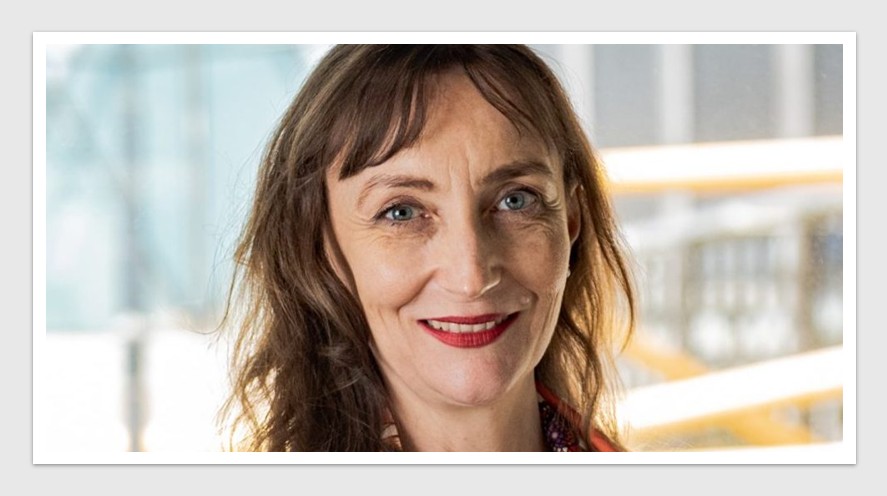News & Trends - Pharmaceuticals
Novartis secures PBS win in early breast cancer as fear of recurrence remains the unspoken battle

Novartis’ CDK4/6 inhibitor, combined with endocrine therapy, has now been listed on the Pharmaceutical Benefits Scheme (PBS) for the adjuvant treatment of patients with with HR+/HER2- stage II and III early breast cancer at high risk of recurrence, including those with high-risk node-negative disease.
This reimbursement of Kisqali (ribociclib) is backed by data from the NATALEE trial, a global phase 3 study conducted at 24 Australian sites. The trial demonstrated an invasive disease-free survival rate of 90.4% in patients treated with Kisqali plus endocrine therapy, compared to 87.1% with endocrine therapy alone (p=0.003). Importantly, adding Kisqali lowered the risk of disease recurrence or death by 25.1% in stage II and III early breast cancer patients.
Dr Sally Baron-Hay, medical oncologist at GenesisCare and Australian investigator for the NATALEE trial, said “It is great to have another treatment option for EBC patients with high risk breast cancer involving multiple lymph nodes. As an oncologist, my primary goal in treating patients with EBC is to reduce the risk of their cancer returning whilst also recognising the importance of maintaining a good quality of life and keeping them feeling well while on treatment.”
Breast cancer recurrence remains a significant challenge: research and clinical experience show that about one-third of stage II and over half of stage III patients will experience cancer recurrence. Nearly 30% of early breast cancer patients progress to advanced disease, where five-year survival rates drop to around a third.
“With this listing, both clinicians and patients will have a choice of treatment. However, some EBC patients at high risk of cancer recurrence will still have limited treatment options available to them. Reducing the risk of BC recurring in all those at high risk will enhance the survivorship of Australians diagnosed with BC at the early stage,” Dr Baron-Hay added. “My hope is that all my EBC patients at high risk of cancer recurrence, regardless of how many lymph nodes the cancer has involved, will have access to Kisqali in the future.”
The PBS listing of Kisqali coincides with the results from Project Shirley, an Australian-first research initiative exploring the lived experience of patients with early breast cancer. Findings from the project were presented at the recent ASCO Congress and St. Gallen International Breast Cancer Conference.
Led by Inherited Cancers Australia (formerly Pink Hope) and funded by Novartis Australia, Project Shirley revealed that 96% of participants reported a negative impact on their mental health due to breast cancer. Half described the uncertainty surrounding their diagnosis as having a significant or very significant emotional toll.
The research also uncovered a striking gap in support: two-thirds of participants expressed dissatisfaction with the emotional support provided by the healthcare system, particularly around mental health resources and information on recurrence risk. Fear of recurrence or uncertainty was the most common challenge cited, with younger patients (≤45 years) and those diagnosed more than two years ago experiencing the highest levels of anxiety.
Alarmingly, 30% of patients did not recall discussing recurrence risk with their clinician, and most of these patients felt they lacked a clear understanding of their personal risk. Furthermore, 75% indicated a willingness to accept new treatments to lower recurrence risk, regardless of potential side effects, costs, or treatment duration.
Matt Zeller, Novartis Country President for Australia and New Zealand, stated “We welcome the PBS listing of Kisqali for node-positive patients at high risk of cancer recurrence. Importantly, this milestone provides the EBC community with more treatment choices, but we recognise there is still more work to be done.”
He added, “We are committed to broadening equitable access to all Australians with HR+/HER2- EBC, including those with node-negative disease, who currently have limited treatment options available to them.”
Novartis Australia has submitted a PBAC application for reimbursement of Kisqali in this population and will continue working with government stakeholders to ensure equitable access for every Australian who could benefit.
Breast cancer remains a significant health burden in Australia, with 58 new diagnoses each day. While mortality rates have fallen by over 40% in the past 30 years, incidence has more than doubled – rising 113% from approximately 9,827 new cases annually in 1994 to over 21,000 expected in 2024.
![]() In reimagining healthcare across the entire patient journey, Health Industry HubTM is the only one-stop-hub uniting the diversity of the Pharma, MedTech, Diagnostics & Biotech sectors to inspire meaningful change.
In reimagining healthcare across the entire patient journey, Health Industry HubTM is the only one-stop-hub uniting the diversity of the Pharma, MedTech, Diagnostics & Biotech sectors to inspire meaningful change.
The Health Industry HubTM content is copyright protected. Access is available under individual user licenses. Please click here to subscribe and visit T&Cs here.
News & Trends - MedTech & Diagnostics

Landmark study exposes stark differences in ICD battery life and patient risk
A new independent study examining over 35,000 implantable cardioverter-defibrillators (ICDs) has uncovered significant differences in battery longevity across several medtech […]
MoreNews & Trends - Pharmaceuticals

Industry roundtable to shape Australia’s genomics policy
An invitation-only roundtable of key industry leaders and representatives from both federal and state governments is convening today to shape […]
MoreNews & Trends - MedTech & Diagnostics

Pathology indexation reboot leaves essential services behind
After nearly three decades of stagnation, the federal government has reinstated annual indexation for selected Medicare Benefits Schedule (MBS) pathology […]
MoreDigital & Innovation

Navigating telehealth’s crowded rulebook: New consortium adds its voice to the mix
A newly formed Consortium of telehealth providers and private health insurers has come together to develop national standards for the […]
More